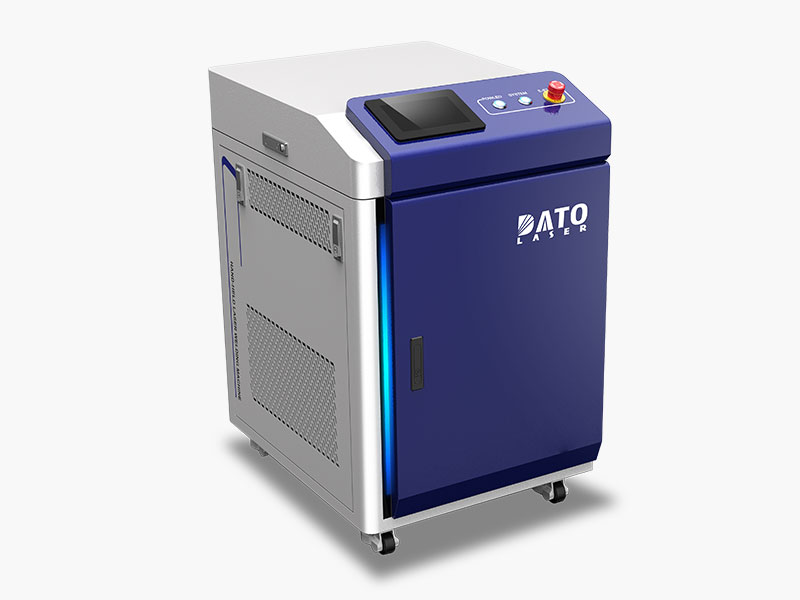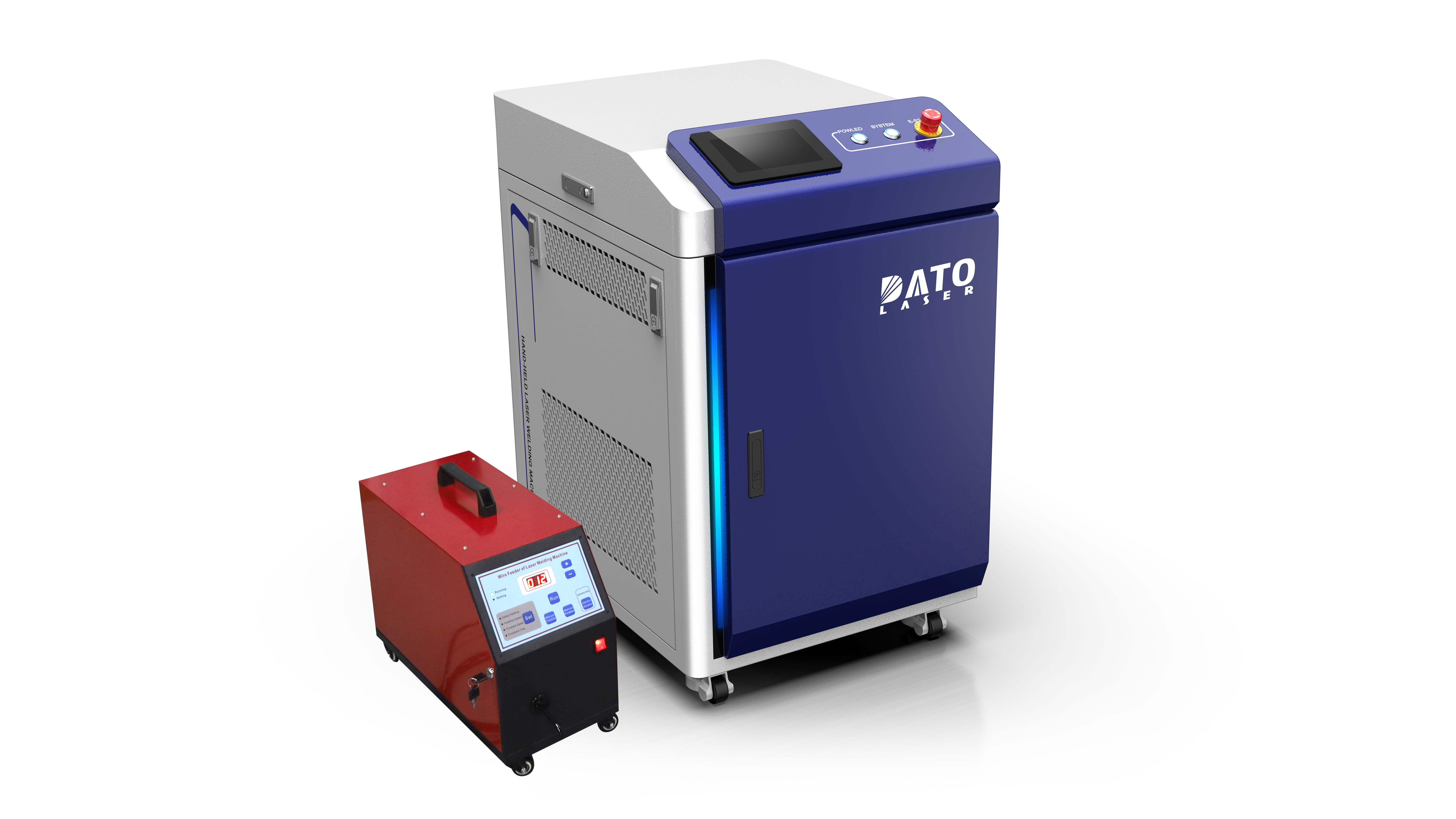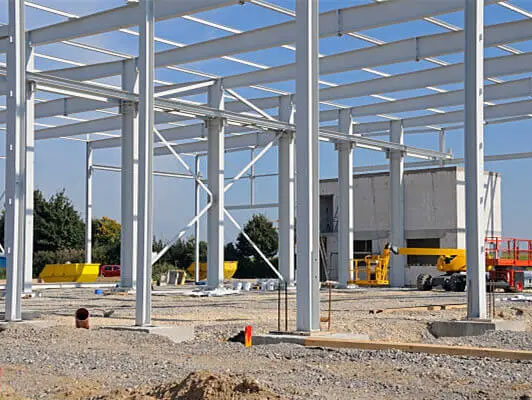How Precise is Laser Welding Compared to Other Welding Methods?

When it comes to precision in welding, laser welding stands out as one of the most advanced and efficient methods available today. At Dato and Leapion, we specialize in providing cutting-edge laser machines, including fiber laser cutting machines, tube laser cutting machines, sheet & tube laser cutting machines, laser welding machines, and laser cleaning machines. With over 15 years of experience in the industry, we understand the importance of precision in manufacturing processes.
This article delves into the precision of laser welding compared to other welding methods, exploring its advantages, applications, and why it is a preferred choice for industries worldwide. Whether you’re a manufacturer, engineer, or simply curious about laser technology, this guide will provide you with valuable insights.
Understanding Laser Welding and Its Precision
Laser welding is a process that uses a highly focused laser beam to join materials together. The precision of this method lies in its ability to concentrate energy into a small, controlled area, resulting in minimal heat-affected zones (HAZs) and highly accurate welds.
The precision of laser welding is measured in terms of its ability to:
Create narrow weld seams with minimal distortion.
Work with delicate or thin materials without causing damage.
Achieve consistent weld quality across large-scale production runs.
Compared to traditional welding methods like arc welding, TIG welding, or MIG welding, laser welding offers unparalleled accuracy.
How Laser Welding Compares to Other Welding Methods
1. Arc Welding vs. Laser Welding
Arc welding is a widely used method that relies on an electric arc to melt and join materials. While it is effective for heavy-duty applications, it lacks the precision of laser welding. Arc welding often results in wider weld seams, greater distortion, and larger heat-affected zones.
In contrast, laser welding produces clean, narrow welds with minimal impact on surrounding areas. This makes it ideal for applications where precision is critical, such as in the medical, electronics, and aerospace industries.
2. TIG Welding vs. Laser Welding
TIG welding (Tungsten Inert Gas welding) is known for its ability to create high-quality welds, especially in thin materials and non-ferrous metals. However, it is a slower process and requires a high level of skill from the operator.
Laser welding, on the other hand, is faster and more automated. It can achieve similar or even better weld quality with less manual intervention. Additionally, laser welding can handle a wider range of materials and thicknesses, making it a more versatile option.
3. MIG Welding vs. Laser Welding
MIG welding (Metal Inert Gas welding) is popular for its speed and ease of use, making it a common choice for industrial applications. However, it is less precise than laser welding and can result in spatter and inconsistent weld quality.
Laser welding eliminates these issues by delivering a clean, precise beam that minimizes spatter and ensures consistent results.
Advantages of Laser Welding
Laser welding offers several advantages that contribute to its superior precision and popularity:
1. High Energy Density
The laser beam’s high energy density allows for precise control over the welding process. This results in minimal heat input, reducing the risk of distortion and damage to the material.
2. Automation and Repeatability
Laser welding systems can be easily integrated into automated production lines, ensuring consistent weld quality across large volumes. This is particularly beneficial for industries like automotive and electronics manufacturing, where precision and efficiency are paramount.
3. Versatility
Laser welding can be used on a wide range of materials, including metals, plastics, and ceramics. It is also suitable for welding dissimilar materials, which can be challenging with traditional methods.
4. Reduced Heat-Affected Zones
The focused nature of the laser beam minimizes the heat-affected zone, preserving the material’s structural integrity and reducing the need for post-weld processing.
5. Speed and Efficiency
Laser welding is significantly faster than many traditional methods, improving productivity and reducing production costs.
Applications of Laser Welding
The precision of laser welding makes it suitable for a wide range of applications across various industries:
1. Medical Devices
Laser welding is used to manufacture medical devices like pacemakers, surgical instruments, and implants. Its ability to create clean, precise welds ensures the reliability and safety of these critical components.
2. Electronics
In the electronics industry, laser welding is used to assemble components like sensors, connectors, and circuit boards. Its precision is essential for working with delicate parts and ensuring optimal performance.
3. Automotive
Laser welding is widely used in the automotive industry to join body panels, exhaust systems, and other components. Its speed and accuracy help manufacturers meet strict quality standards while reducing production time.
4. Aerospace
The aerospace industry relies on laser welding for its ability to join lightweight materials like aluminum and titanium with high precision. This is crucial for ensuring the safety and performance of aircraft components.
Why Choose Dato and Leapion for Laser Welding Solutions?
At Dato and Leapion, we are committed to providing top-quality laser welding machines that meet the diverse needs of industries worldwide. Our extensive experience since 2007, combined with a dedicated team of 120 researchers, ensures that we stay at the forefront of laser technology innovation.
Our laser welding machines are designed to deliver unmatched precision, efficiency, and reliability. Whether you’re working on intricate medical devices, robust automotive components, or cutting-edge aerospace parts, our solutions are tailored to meet your requirements.
Additionally, our commitment to quality is reflected in our adherence to international standards such as ISO9001, EU CE, and US FDA. With a global presence and participation in over 80 exhibitions annually, we have built a reputation for excellence in manufacturing and customer satisfaction.
When you choose Dato and Leapion, you’re not just investing in a laser welding machine—you’re partnering with a trusted leader in the laser industry. Explore our range of products and discover how we can help you achieve unparalleled precision and efficiency in your welding applications. Let us be your go-to source for advanced laser solutions that drive innovation and success in your business.
For more information or to discuss your specific needs, contact us today. We’re here to support you every step of the way.
Related Blogs
-
 Exploring the Safety, Precision, and Industrial Benefits of Laser Surface CleaningIn today’s fast-paced industrial world, where quality, efficiency, and sustainability are top priorities, manufacturers are constantly seeking better ways to clean metal surfaces without compromising material integrityBlog
Exploring the Safety, Precision, and Industrial Benefits of Laser Surface CleaningIn today’s fast-paced industrial world, where quality, efficiency, and sustainability are top priorities, manufacturers are constantly seeking better ways to clean metal surfaces without compromising material integrityBlog -
 A Complete Guide by DATO and LeapionIn modern industry, surface preparation and maintenance play a crucial role in achieving high-quality manufacturing results. Laser cleaning machines have emerged as one of the most innovative, efficient, and environmentally friendly tools for removing contaminantsBlog
A Complete Guide by DATO and LeapionIn modern industry, surface preparation and maintenance play a crucial role in achieving high-quality manufacturing results. Laser cleaning machines have emerged as one of the most innovative, efficient, and environmentally friendly tools for removing contaminantsBlog -
 Laser cleaning machines are revolutionizing industrial surface cleaning by offering a faster, safer, and more eco-friendly alternative to traditional methods. Whether removing rust, paint, oil, oxide, or other surface contaminants, laser cleaning has become a cutting-edge solution in manufacturing,Blog
Laser cleaning machines are revolutionizing industrial surface cleaning by offering a faster, safer, and more eco-friendly alternative to traditional methods. Whether removing rust, paint, oil, oxide, or other surface contaminants, laser cleaning has become a cutting-edge solution in manufacturing,Blog -
 Introduction: Transforming EV Battery Manufacturing Through Laser TechnologyThe electric vehicle revolution has accelerated dramatically over the past decade, bringing with it unprecedented challenges and opportunities in battery manufacturing. As global automakers commit billions to electrificationBlog
Introduction: Transforming EV Battery Manufacturing Through Laser TechnologyThe electric vehicle revolution has accelerated dramatically over the past decade, bringing with it unprecedented challenges and opportunities in battery manufacturing. As global automakers commit billions to electrificationBlog















